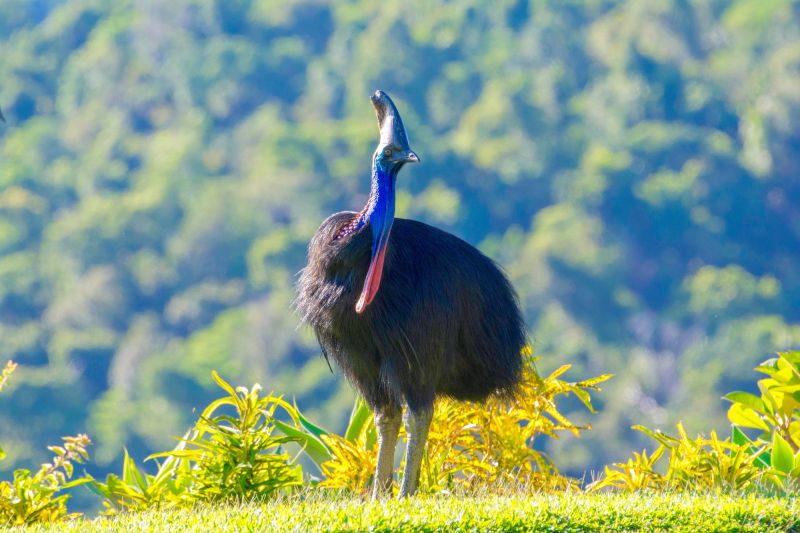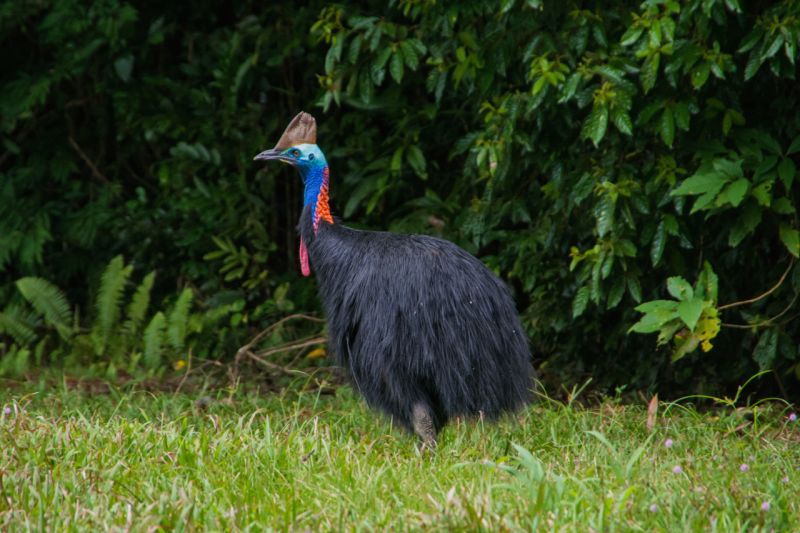For those of us passionate about nature, it's easy to feel overwhelmed by the ongoing challenges facing our planet - deforestation, biodiversity loss, pollution, and habitat destruction. But every now and then, something happens that reignites our hope and reminds us why conservation efforts matter.
Recently, one of those rare and uplifting moments unfolded on the Atherton Tablelands in Far North Queensland. During a Tablelands & Crater Lakes tour with FNQ Nature Tours, their lead guide Melanie, along with her lucky guests, made an extraordinary discovery - a young Southern Cassowary in Crater Lakes National Park. This marks the first confirmed sighting of a cassowary in the area since 1994.
"I've been guiding up (here) for many, many years and it certainly never happened to me, or anybody else that I know," said James Boettcher, owner of FNQ Nature Tours, as he shared the news. "This is an amazing and very exciting discovery."
This sighting is not just thrilling; it's a testament to decades of conservation and reforestation efforts that have helped reconnect fragmented rainforest habitats.
Watch Melanie's footage in the video below.
A moment decades in the making
To understand why this moment is so significant, we need to look at the region's history. From the 1870s to the 1970s, the Atherton Tablelands were heavily logged, leaving only small, isolated pockets of rainforest. Without the natural corridors that cassowaries rely on to move and forage, the population in the area disappeared.
"The Atherton Tablelands was very heavily logged for about a century ... and a lot of the national parks are in small isolated fragments," James explained.
Groups such as TREAT (Trees for the Evelyn and Atherton Tablelands), Terrain, and many others have spent years planting corridors of trees to bridge these remaining rainforest areas. And now, it seems those efforts are paying off in a truly spectacular way.
"This is the greatest pat on the back for those who have dedicated years to reforestation," James said.

The importance of cassowaries
Southern Cassowaries are critical to the health of Queensland's tropical rainforests. As keystone species, they play a crucial role in seed dispersal, helping to regenerate and maintain the biodiversity of these ecosystems. Without cassowaries, many rainforest trees would struggle to reproduce, disrupting the delicate balance of this ancient environment.
"We share lots of cassowary footage and photos all the time - they're such iconic and fascinating birds," James said. But this sighting is different. This bird has appeared in a place where it hasn't been seen in decades - because the habitat is finally recovering.
A conservation success story worth celebrating
This sighting is more than just an exciting moment for wildlife enthusiasts - it's a powerful reminder that conservation works. When passionate individuals come together to restore habitats, nature responds.
For those lucky enough to encounter a cassowary in the wild, it's a privilege. However, with that privilege comes responsibility. As we celebrate this incredible sighting, we must also ensure that these birds remain wild and undisturbed. That means:
- No feeding - Human food can be harmful and can lead cassowaries to become aggressive.
- No encroaching - Keeping a respectful distance ensures their natural behaviour isn't disrupted.
- Protecting their habitat - Supporting reforestation and conservation efforts helps ensure they continue to thrive.
"If this individual does decide to stay (in the area) and mark its territory there, we need to be very careful that we don't entice it in the wrong way," James cautioned. "Despite our temptations, (we) definitely don't want to be feeding these wild birds (which) can make them very dangerous, and (we just need to be) mindful of leaving food out when we go for a swim."

For decades, the story of the Atherton Tablelands was one of deforestation and loss. Today, it's a story of restoration and resilience. The return of the cassowary is proof that small efforts, sustained over time, can lead to big wins for wildlife.
"So well done to everyone involved in tree planting on the Tablelands," James said. "This is incredible. I'm overwhelmed - and I cannot wait to have this experience myself."
Want to experience the magic of Far North Queensland's wildlife for yourself? Join FNQ Nature Tours on a guided wildlife and nature tour, and witness conservation in action.

